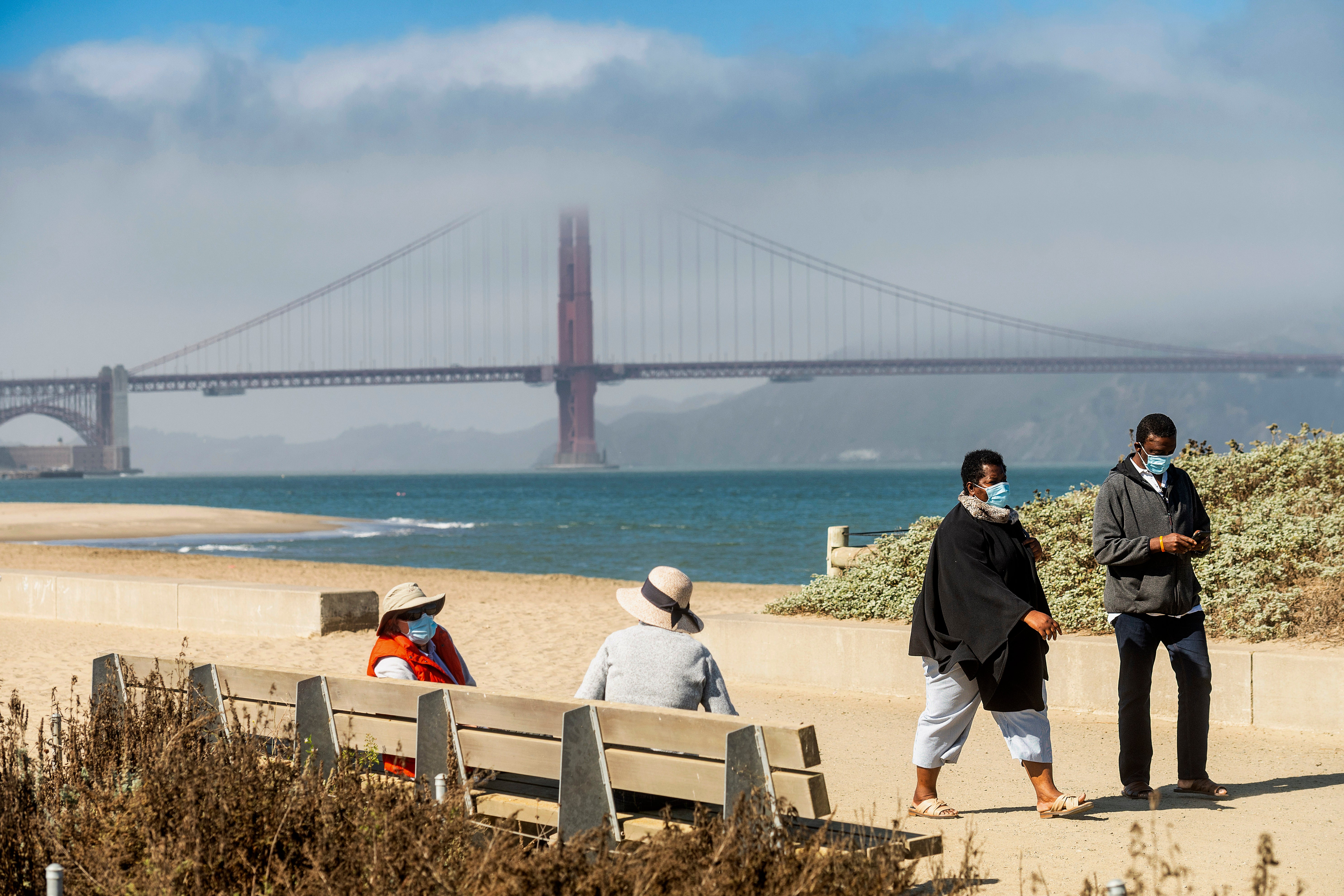San Francisco loses ‘super star city’ status after a mass exodus during pandemic, according to economic ranking
San Francisco has been knocked off the No.1 spot for growth by Provo-Orem in Utah, following a mass exodus of tech workers during the pandemic, The Milken Institute reported in its annual economic ranking of US cities

San Francisco has lost its claim as America’s number one “super star city” when it comes to growth, after the pandemic caused a mass exodus from its tech industry, a new report has revealed.
A move to remote working following the arrival of the novel coronavirus made the Bay Area, with its notoriously high cost of living, less appealing, according to the non-profit think tank, The Milken Institute.
The rankings take into account new job creation, the cost of living and salaries, as well as housing affordability and access to broadband for the first time.
The annual economic ranking report found a significant shift from the traditionally top performing coastal areas, like California and Massachusetts, to southern and ‘west intermountain’ cities, for the first time, as reported by Business Insider.
San Francisco, which is a hub for Silicon Valley workers, fell to number 24 on the list, after thousands of residents reportedly packed up and left to cheaper locations with more space, causing rents to drop for the first time in years.
The move may be permanent for some after several companies, including Twitter, announced they would allow employees to work remotely even after restrictions eventually lifted.
Many of the workers from Silicon Valley, as well as Wall Street in New York, reportedly moved to cheaper areas like Palm Bay, in Florida and Austin, in Texas, which took the second and third spots on the list.
Salt Lake City in Utah rose by 21 spots to fourth place.
The new top spot was unexpectedly awarded to Provo-Orem in Utah; a region with a population of just 585,000 that recently attracted tech giants including Qualtrics, Vivint, and SmartCitizen, on the strength of its rocketing job, wage and high-tech GDP growth.
Kevin Klowden, the think tank’s executive director, said in a statement: “The pandemic has an outsized impact on cities where the economic effects of the current recession are exacerbated by high housing costs.”
The report noted: “California’s usual standouts, including No. 24 San Francisco and No. 22 San Jose, dropped to Tier 2 of the index due to the high cost of housing and a strong negative shift in short-term job growth. This may indicate the outsized effect of the coronavirus pandemic on so-called “superstar cities.”
Whilst some of the moves have been welcome, with the city of Huntsville, Alabama, rising 39 spots to break into the top ten for the first time with its growing tech sector, the impact on the influx to some of the smaller cities is already evident, the report claimed.
Miami, in Florida, fell 38 spots on the list due to rising costs of living, with home prices rising 29%.
Misael Galdamez, a senior policy analyst at the institute, said in a statement: “Thereport also showed how the pandemic has shifted the balance of power between cities as former top performing cities like San Jose, Seattle, and Dallas could no longer be categorized in the top 10 places for job creation, growth, and innovation.”
Join our commenting forum
Join thought-provoking conversations, follow other Independent readers and see their replies
Comments

Bookmark popover
Removed from bookmarks